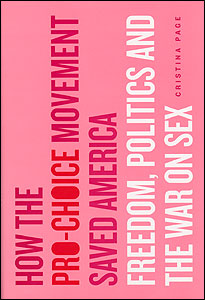This month marks the 40th anniversary of the Supreme Court’s Roe v. Wade ruling, and TIME‘s recent article, “What Choice? Abortion-rights activists won an epic victory in Roe v Wade. They’ve been losing every since” makes some disturbing points. Here are a few stand outs:
“In 2011, 92 abortion-regulating provisions – a record number – passed in 24 states.”
“The number of abortion providers nationwide shrank from 2,908 in 1982 to 1,973 in 2008…getting an abortion in America is, in some places, harder today than in any point since it became a constitutionally protected right 40 years ago this month.”
Legislators have been trying to pass laws with fetuses as “persons” but none have succeeded to date. But more attempts keep coming, like legislation to be introduced in North Dakota that “would “grant fetuses ‘personhood’ status and directly challenge the constitutional basis for Roe v Wade.”
“The modern era of state restrictions on abortion began in 1992 with the Supreme court’s decision in Planned Parenthood v. Casey. The court upheld Roe v Wade but said states have the right to regulate abortions as long as they don’t write laws that impose ‘undue burden’ on women. Pro-life politicians enacting laws to limit abortion are now testing the limits of the Casey ruling. Their ultimate goal is to land another abortion case before a sympathetic Supreme Court in an attempt to overturn Roe v Wade.”
Pro-lifers’ strategy is to “work around Roe” to “severely or completely-curtail access to abortion at the state level.”
 Cristina Page, author of How the Pro-Choice Movement Saved America, says the “villain is now in the fine print” – meaning things like ridiculous rulings requiring abortion clinics to comply with the same architectural zoning regulations as hospitals.
Cristina Page, author of How the Pro-Choice Movement Saved America, says the “villain is now in the fine print” – meaning things like ridiculous rulings requiring abortion clinics to comply with the same architectural zoning regulations as hospitals.
Article author Kate Pickert also speaks to another problem – how “pro-choice” and “pro-life” terminology just doesn’t reflect many people’s position on the issue. For example, according to “Gallup’s polling, significant numbers of people who identify as ‘pro-life’ also say they want abortion to be legal.” And for many, it is not clearly one position or the other; 40 percent say their personal view of abortion is not black and white – that it depends on the situation.
According to Pickert, young abortion rights activists have a new strategy to “modernize the cause.” They are attempting to reframe pro-choice to an agenda that is “broader and more diffuse.” They’re dumping the use of “pro-choice” altogether using “reproductive justice” instead, which includes “abortion access, but also contraception, child care, gay rights, health insurance and economic opportunity.”
It is time to reframe the issue away from “choice” versus “life.” But can a broader justice frame be enough to bring together factions who will still have passionately different views on abortion?
One thing for sure, new framing of the issue is going to have to speak to Millennials. According to the Guttmacher Institute, of the women in the U.S. who have abortions, 58 percent are in their 20s. Millennials will also “make up 40 percent of the electorate by 2020.”
With or without a new frame attached to the issue, two-thirds of voters say they want abortion to remain legal. And as the smart Not In Her Shoes video asserts, younger generations do not want to be labeled pro-choice or pro-life; they don’t want to be boxed into one or the other.
In or outside the old boxes, the question remains-what is the narrative we need now to keep Roe v Wade the law of the land?


Laura, don’t forget about the threats and intimidation on those who have anything to do with abortion receive from those who oppose it. These include threats to doctors (and the killing of Dr. Tiller) and even Associate Justice Harry Blackmun who wrote the majority opinion in Roe.
I recall a “60 Minutes” segment back in the 1990s (after the Tiller murder) about an abortion doctor who went through quite an ordeal to get from her house to the clinic (in another state) in which she performes abortions. Besides the long commute, she had to run the gauntlet of protesters outside her house and wear a bullet-proof vest and have an escort to the airport.
One reason why abortion is such a taboo subject for many Americans is because we are still not very comfortable with the larger idea of having children as a full choice, i.e., treating every child as the outcome of choices people make.
Even some people who support abortion access fail to grasp the concept of having children as an individual choice. Even women who terminate earlier pregnancies may look on the children they have later as gifts or blessings or children who arrive somehow out of nowhere. They “chose” to terminate that earlier pregnancy but then just “became pregnant” and “had a baby,” as if that wasn’t really a choice.
I know plenty of pro-choice people who don’t act like they had children because they CHOSE to have children. Somehow the children just showed up, and no one is responsible for that, but the rest of society is responsible for helping them.
Somehow, once someone has a child, that parent stops looking at that child as the product of a decision. Hardly anyone ever says “I decided to have child.” Maybe that’s considered too crass or not something that the child should ever hear, but it’s a fact.
Parents who excuse themselves from work because of their children’s needs hardly ever talk about having that child as a choice they made. You don’t have to leave work early because you “have kids,” you’re choosing to leave because you chose to have kids.
Hi Scott, Reading your last line made me think of another way to say it in today’s pronatal world… “because you ‘have kids’ you Get to leave because you chose to have kids”!
Good point.
I’ve also been wondering what other people think about Lewitt’s _Freakonomics_ book. One of his hypotheses is that greater access to abortion since 1973 has actually resulted in a long-term decrease in crime. (Contrary to popular belief, the overall crime rate has been going down for the past 40 years.) He suggests that there are children not being born today who otherwise would have grown up with terrible childhoods and then would have gone on to commit crimes. In earlier generations they would have been born, but with abortion access fewer of them get born today.
This theory is of cource very controversial and really creepy if you take it too far, but there may be some really big demographic legacies of _Roe v Wade_ that people haven’t noticed but will eventually.